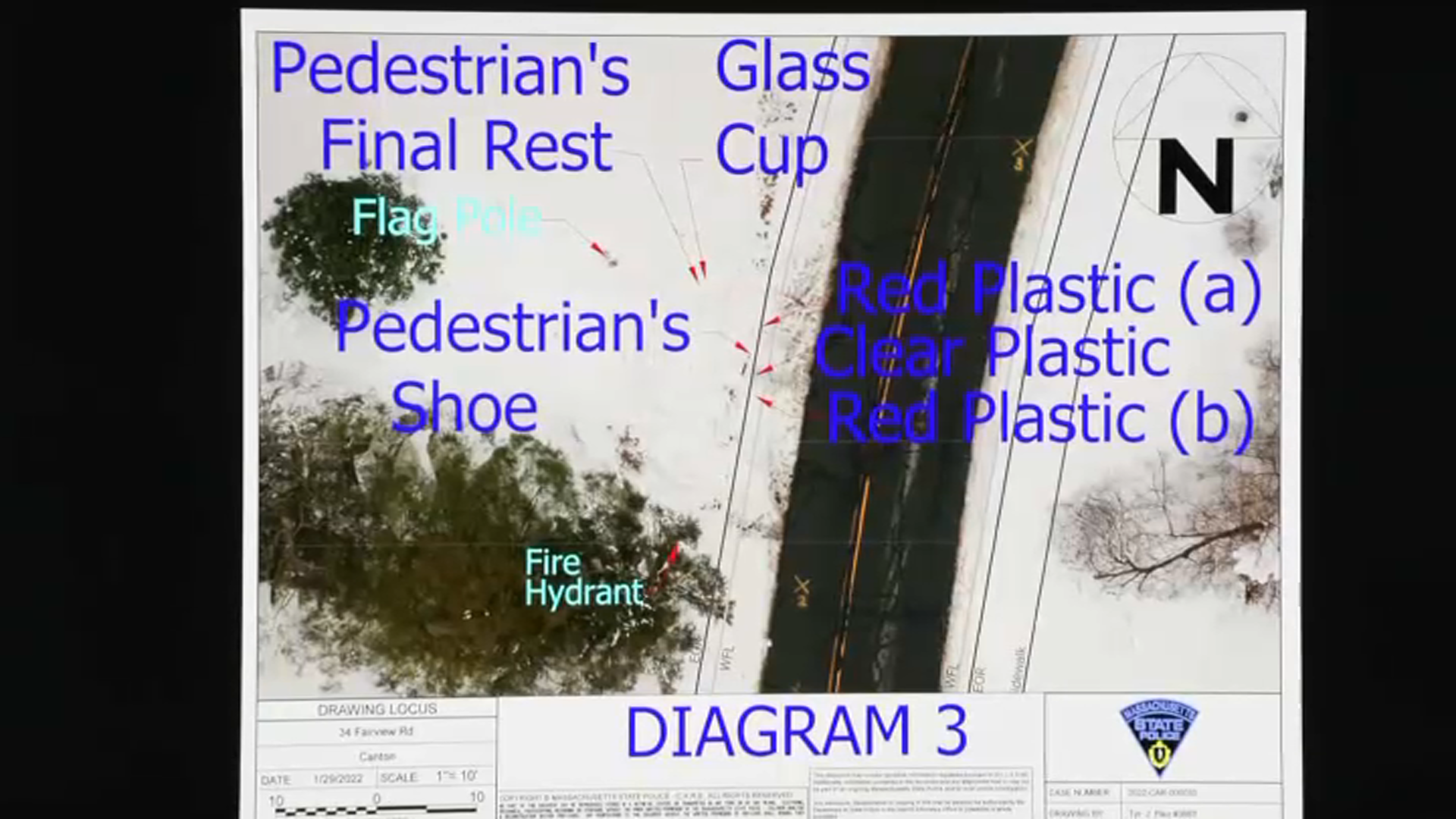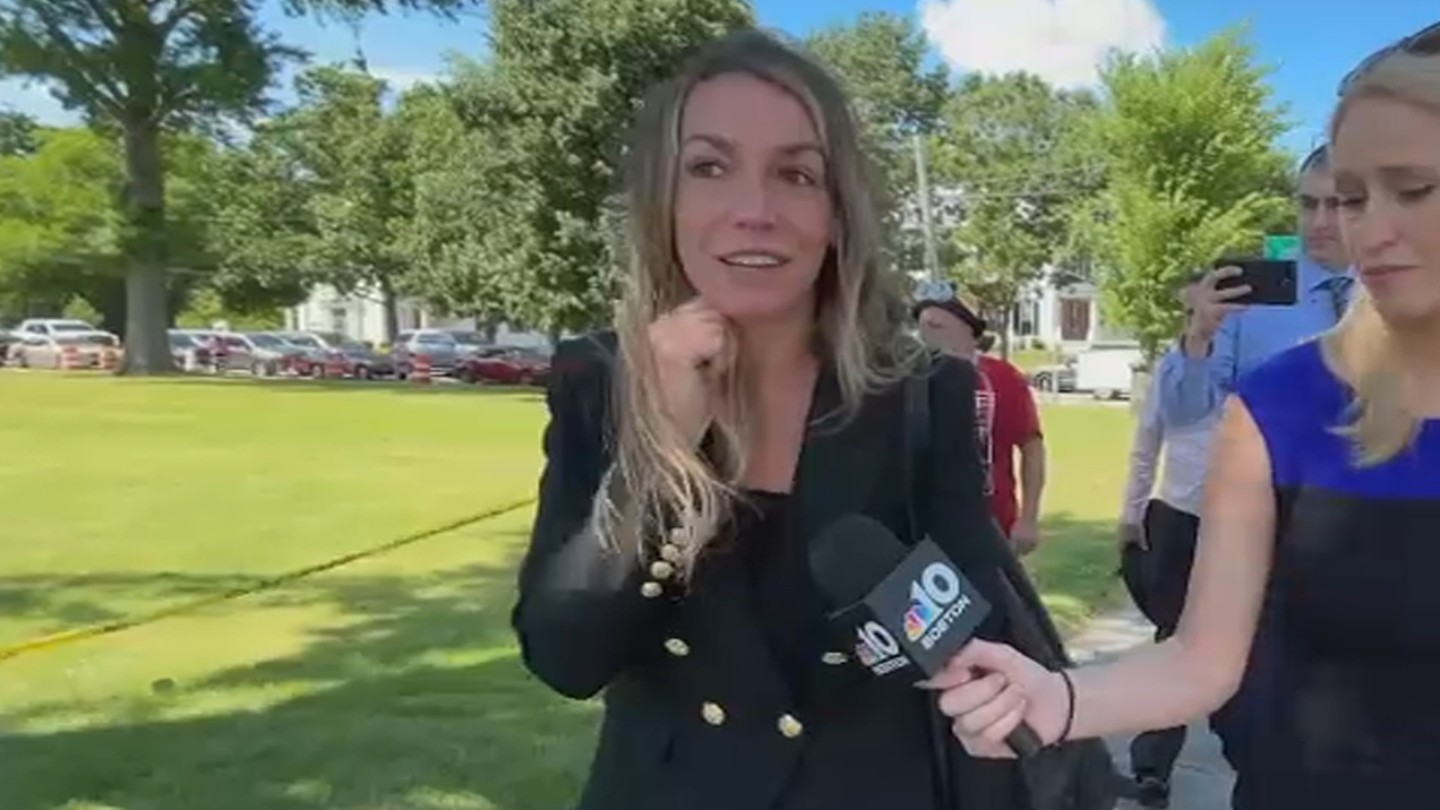The Karen Read murder trial continued Tuesday without the jury. Instead, The defense, prosecution and even the judge took turns asking questions of three potential expert witnesses who may be allowed to testify.
The voir dire proceeding involved retired emergency physician and forensic pathologist Dr. Marie Russell, whom Judge Beverly Cannone noted was brought into the process late, as well as two accident reconstruction experts from the firm ARCCA who were brought in by a third party — one expert revealed their identity as federal investigators — to examine on their own whether John O'Keefe was really struck by Read's vehicle, as state prosecutors allege.
STAY IN THE KNOW
Watch NBC10 Boston news for free, 24/7, wherever you are. |
|
Get Boston local news, weather forecasts, lifestyle and entertainment stories to your inbox. Sign up for NBC Boston’s newsletters. |
Cannone didn't make a decision on whether any of the three expert witnesses would be allowed by the time the session ended in the early afternoon. Outside of court, Read, who's pleaded not guilty and alleges a complex coverup by investigators, reiterated what she first told NBC10 Boston last week about testifying in the trial:
"I'm an outspoken person and I've never been able to not speak up for myself in my defense, except when it matters the most. I've got to rely on them and their expertise and I've got to defer to the attorneys," she said.
Monday's testimony had focused on the alleged pedestrian crash involving Read and her Boston police officer boyfriend, John O'Keefe.
Massachusetts State Police Trooper Joe Paul was grilled on his qualifications concerning crash reconstruction. Another state trooper, Nicholas Guarino, read a series of text messages between Read and O'Keefe that suggested the couple was struggling.
Court is closed Wednesday for Juneteenth. Testimony resumes on Thursday.
Dr. Marie Russell takes the stand
Dr. Marie Russell, an expert witness for the defense, was the first person to take the stand Tuesday as part of the voir dire proceeding. Russell testified that arm injuries suffered by O’Keefe were consistent with an animal attack.
The prosecution had filed a motion seeking to exclude this witness.
Cannone explained there appeared to be a violation of reciprocal discovery regarding Russell, and said she wants to hear from the witness to see if there has been a violation.
Russell walked the court through her qualifications and years of both medical and police experience, which have included writing articles on dog bites in criminal cases.
She said she reviewed materials provided to her by the prosecution and found O'Keefe's "injuries appear to be consistent with an animal attack," specifying it was likely from a large dog. She pointed to a combination of apparent bite and scratch wounds in the arm, as well as holes in the shirt.
Russell also said that, "having seen hundreds and hundreds of car accident victims, and people hit by cars, I ruled that out very quickly."
Pressed by Assistant District Attorney Adam Lally, she said she's never worked with the defense attorneys, and got in touch with them on May 17.
"I contacted a district attorney that I had worked with in the past, a case I autopsied in 1995, and I mentioned that I heard that there was a case in Massachusetts that might have been being handled by one of his former colleagues, and there was an issue of whether there was a dog bite and that I might be able to help," Russell said.
She looked at hospital records and autopsy photographs and gave her opinion.
Lally asked her if, when she looked at the report, she knew the injury to be from a dog bite, and Russell replied, "I had heard that there was a controversy."
A Boston Globe headline in her email was what brought the case to her attention, she said, adding, after questioned, that she hadn't paid attention to any other headlines about the case she might have seen.
Cannone asked Russell how certain she was about her opinion, and helped her to say the conclusion that she had a reasonable degree of medical certainty.
Russell also told the judge that she hadn't reviewed information on bites from a dog that lived at the Canton home where O'Keefe's body was found, or about a prosecution report previously entered into evidence that indicated no dog DNA was found on evidence from the case shared with her office.
After she was questioned, the prosecution and defense argued over whether she should be allowed as a witness in the case — after Cannone found that a legal rule had been broken in bringing her so late in the case.
Lally characterized it as an "immensely late disclosure," and said he found it suspect that she hadn't heard about the case despite its widespread media coverage.
Jackson countered that his team hadn't done anything wrong — Russell contacted them — and so his client shouldn't be punished because her rare expertise came to light so late.
"She's going to present contrary evidence for an alternative theory
we have contrary evidence and Ms. Read should be able to present that evidence even though it came late," he said.
Cannone said she was taking it under advisement on the day off, but indicated that, if Russell were to be allowed to testify, it would be limited to her analysis of injuries to O'Keefe's arm.
Crash reconstruction experts
The next two experts who were questioned both work for high-profile forensic consulting engineering company ARCCA. Daniel Wolfe and Andrew Rentschler were two of three of its employees who worked on a third-party report about what caused O'Keefe's death, they said.
"The agency that retained us gave us a select quantity of file material related to this case. And, essentially, left it as an open-ended question. Ultimately, was the evidence consistent with a pedestrian interaction between Mr. John O'keefe and [Read's] Lexus," Wolfe said, when asked what the team was tasked with.
They didn't share information on what they concluded and the lawyers were careful not to mention who had commissioned the report, but Wolfe told the judge that the information was provided to them by the U.S. Department of Justice and the FBI.
"We had no say in what material was handed over to us," he said.
The mention of the federal investigators is a rare glimpse into their own probe of the Karen Read case, which took place in the run-up to the trial. The ARCCA report was filed Feb. 12, Rentschler said.
Days later, Cannone delayed the start of the trial, after prosecutors released thousands of pages of new evidence from their investigation into how the case was handled to the lawyers — which the defense said at the time was exculpatory. Prosecutors, however, said most of the information was consistent with prior testimony.
After the pair of ARCCA investigators spoke in court, Cannone said she had "questions as to the scope of the testimony of the witnesses," but Lally didn't push back much on their inclusion, except on whether they could testify to the cause of O'Keefe's skull injuries.
Jackson argued they are "highly, highly qualified," and will have a different take on the evidence provided by Paul, the state police trooper.
As court ended, Cannone said, "I did not expect it to go this quickly, we could have used the jury here, but I'm sure you all could use the afternoon to prepare."




